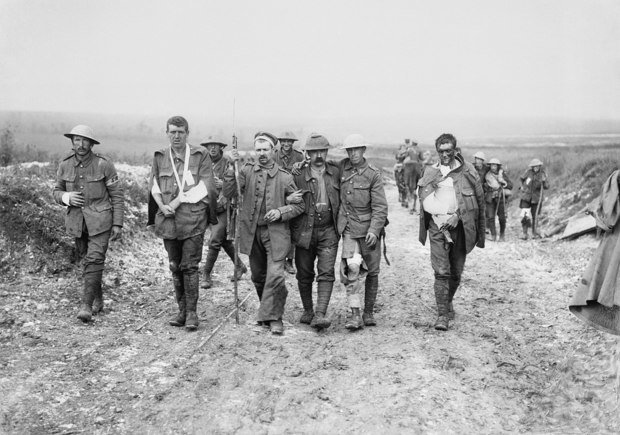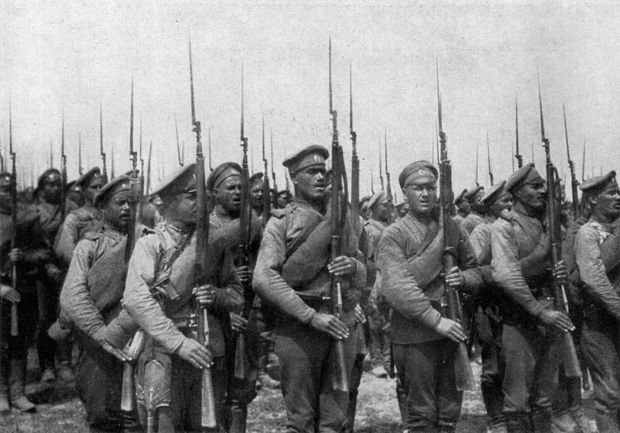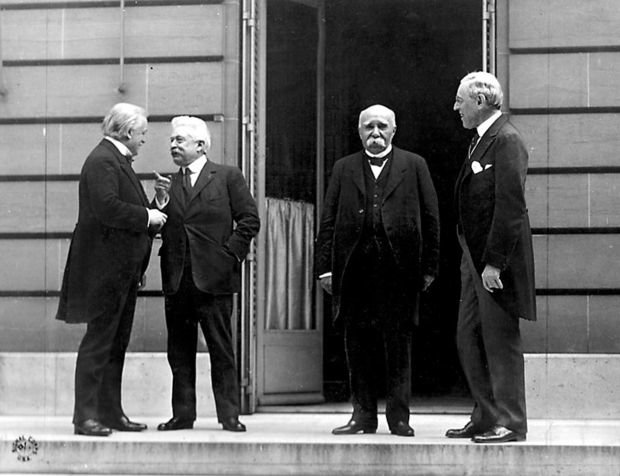''Brusilov Offensive was declared a great achievement of Russian military thought, but it was nothing like this''
Interview with Vladimir Buldakov about the First World War
This year is marking 100 years since of the end of the First World War. Vladimir Buldakov, Doctor of Historical Sciences, Professor, the author of the book The War that Gave Rise to the Revolution: Russia, 1914–1917 shared his thoughts about this date and whether Russia lost in this war in the interview with Realnoe Vremya.
Dr. Buldakov, why is Russia, which fought in the First World War for more than three and a half years, not marking the centenary of its end at the state level? You must agree that the Brusilov Offensive is the merit of Russia, it is the courage of Russian soldiers in the battles in Prussia saved Paris from the capture of the Germans in 1914, besides Russia before others realized the uselessness of this war.
This centenary turns out to be ambiguous for Russia — Russia withdrew from the war before the Treaty of Brest-Litovsk. Besides, Russia did not participate in the 1919 peace conference in Versailles. The mood of former allies in the Triple Entente in connection with the separate peace concluded by Russia with Germany were such that Russia had to be ignored. It's no secret that the results of the First World War were determined by the four winners — England, France, the United States and Italy, mainly England and France. Russia was ignored consciously, partly because the Bolsheviks came to power, but Russia would have been ignored by them in any case. Therefore, there is nothing to commemorate, and even if the date of the end of this war means something to Russia, it is that Germany began to leave the occupied territories of Ukraine and Belarus — that's it. This date doesn't sound well for Russia, if you like!
Do you understand what the First World War is for the current leadership of the country, its significance?
I have the impression that the current leadership of Russia marks many anniversaries only formally — they have other things on their mind. So the attempts to redefine what the First World War is are just not taken, although this war in every sense — a milestone date. In fact, all the ideas of the Age of Enlightenment collapsed in the First World War. The faith in reason, faith in the ability to reorganize the world rationally collapsed. As we can see, the whole 20th century is the century of unlearnt lessons of the First World War. After the conclusion of the Treaty of Versailles they also said that it was not a peace treaty, but a treaty of truce. After 20 years, the war resumed. Many scientists believe that one historical period includes both world wars. Well, rulers of many states did not understand that it was necessary in a different way not even to conduct a war, but to counteract its occurrence. It seems to me that there is still this lack of understanding. Unfortunately, the history of all wars is written by winners, and it is difficult to expect a sober and in-depth assessment of this phenomenon from winners — it was so at all times.
In the Soviet era, this war was called imperialist. Is it the correct interpretation at the present time?
It was true, but today, unfortunately, we have forgotten that it was the war of empires, the war for the repartition of the world. Of course, many scholars tend to say that this war was waged by democracies, and this is incompatible with empires, they say. But they say so in vain — no doubt it was the war of empires. Even before the war, contemporaries assumed a war of empires. In the journalism of that time, they described scenarios of particularly war of empires, and these scenarios are more or less justified, and they also do not write about this in our country today, and it seems they do not know. The main culprit of the war, in my opinion, is Germany. If you take the mindset in Germany in the pre-war era, everything indicated that, they say, it was time for Germany, Germany should become the hegemon of Europe. Many writers, philosophers of Germany supported these ideas. Public opinion in Germany was aggressive in those years! Hitler in the '30s said that Britain always did not allow them to live, but before the war Britain behaved very passively. At first Germany hoped that it would not enter into a world war and they would defeat France and become the hegemon of Europe, agreeing with England. Although the main culprit is Germany, everyone is guilty of this war, because the participating countries did not think that the war would take such a terrible character, but hoped for a short duration of the war. But the losses amounted to 70 million people — it's terrible.
What are Russia's losses in the First World War in your estimations?
Here is a rather strange thing — in the '20s, it was declared about 700,000 killed, but over time this figure began to grow, and now it is believed that the irretrievable losses of Russia in the First World War amounted to about 1,500,000 people, although some call the figure of 1,800,000. But I think that there is certain slyness — the figures are exaggerated consciously, so that the losses in the Second World War did not look so terrible. It is difficult to count here for another reason — there were very large losses among the civilian population in the First World War and it was the first time in history. In Germany, for example, a large number of victims were during the famine in 1917-1918, or what is known as the Turnip Winter (by the way, because of the food problem Germany had to withdraw from the war), but for Russia in its territories the losses were not so great.

''The participating countries did not think that the war would take such a terrible character, and hoped for a short duration of the war.'' Photo: wikipedia.org
Should Russia be considered a loser of this war?
Did Russia lose the war? No, it did not — the state just collapsed.
Is the army, earlier not quite ready for it, not such a significant factor of the defeat already?
No one was ready for the war, in terms of ammunition and weapons. England and France just managed to quickly mobilize the industry to produce new types of weapons and began to work effectively for this very war, but Russia did not succeed due to a number of organizational reasons. Russia also lagged behind in terms of technology — no new types of weapons was created in Russia and here Russia depended on the supplies of its allies. Russia did not stand the test of world war in every sense.
Is it possible to clearly define when Russia ceased to be interested in winning the war? Under the Provisional Government or the tsar?
This question is very difficult to answer, but in the second half of 1916 people ceased to understand why this war was needed, and, of course, was tired of the war. As for the political elites, all of them, with the exception of the Bolsheviks, left-wing socialists and all sorts of anarchists, believed that the war should continue until the end, although the opportunities for this were becoming less and less.

''The Brusilov Offensive was declared a great achievement of Russian military thought, but in fact, it was nothing like this — there were no outstanding results from this offensive, and everyone knows this.'' Photo: wikipedia.org
Nevertheless, the army still continued to believe in victory, but, as I understand it, became disappointed in the tsar, the rumours about whom they believed, right?
Of course, the tsar was ruined by rumours, and there was nothing worse than when people became disappointed in the power. The army did have the ability to fight and there were no defeatist sentiments — the Russian man was accustomed to fight: he was told to fight — he fought. The army decay began in 1917, although already in 1916 there were cases of disobedience, but such cases took place in all warring countries — even in the German army. If different kinds of deserters in France were executed by shooting without further ado and all sorts of soldiers' riots were suppressed very harshly, then Russia simply did not have time to do it, so the Russian army accumulated a huge number of deserters. Although it was hard to even call them as deserters — the Russian man was simply not accustomed to strict discipline, he decided, ''I will walk for two days and will be back!'', and many soldiers did not understood that it was considered desertion. This is all the unpleasant details, but until March of 1917 they army could fight, or rather, could control the front, but was unable to go on the offensive. Yes, the Brusilov Offensive was declared a great achievement of Russian military thought, but in fact, it was nothing like this — there were no outstanding results from this offensive, and everyone knows it, although the current ''hurrah patriots'' continue to shout that it is something outstanding.
The fatal role for the army, the reason why it began to decay, was played by the order No. 1 of the Petrograd Soviet of Soldiers' and Workers' Deputies (on the creation of elected committees in the army from representatives of lower ranks, to which military units were subordinate, on the transfer of weapons under the control of committees, the title of officers was cancelled — S. K.), but it was inevitable — the army could not exist on the previous bases, but the political culture of people simply did not accept the democratic foundations — they were just incompatible, so the democratization of the army turned into anarchy in it.
Why such a bloody war did not shake the regimes in England and France?
The alienation between officers and people and those armies was very big, they belonged to different classes, to different cultures, differently looked at the war, but there was a strict discipline, but in Russia it was more relaxed — the paternalistic culture affected. Besides, in France there was a national reconciliation in connection with the war, and in England in this regard it was even easier: although they shifted from voluntary service in the army to the introduction of compulsory conscription, but it became possible only in a democracy.
Why did the Entente win, not Germany? Is it really The food problem in Germany to blame, which led to the unrest of the workers and the revolution?
Germany did not lose in a military sense — suffice it to say that after the war the German population welcomed its army. It is the civil population did not survive the war — they did not bear problems with food, but the unity of the army with the people was evident.
But if the Entente was already advancing on the entire Western front, and Germany had no forces left, the army was decaying and the German General Staff asked for a truce, how can we say that the German army did not lose?
Yes, the German army could only fight back, but the internal factor played the same fatal role as for Russia.
To be continued
